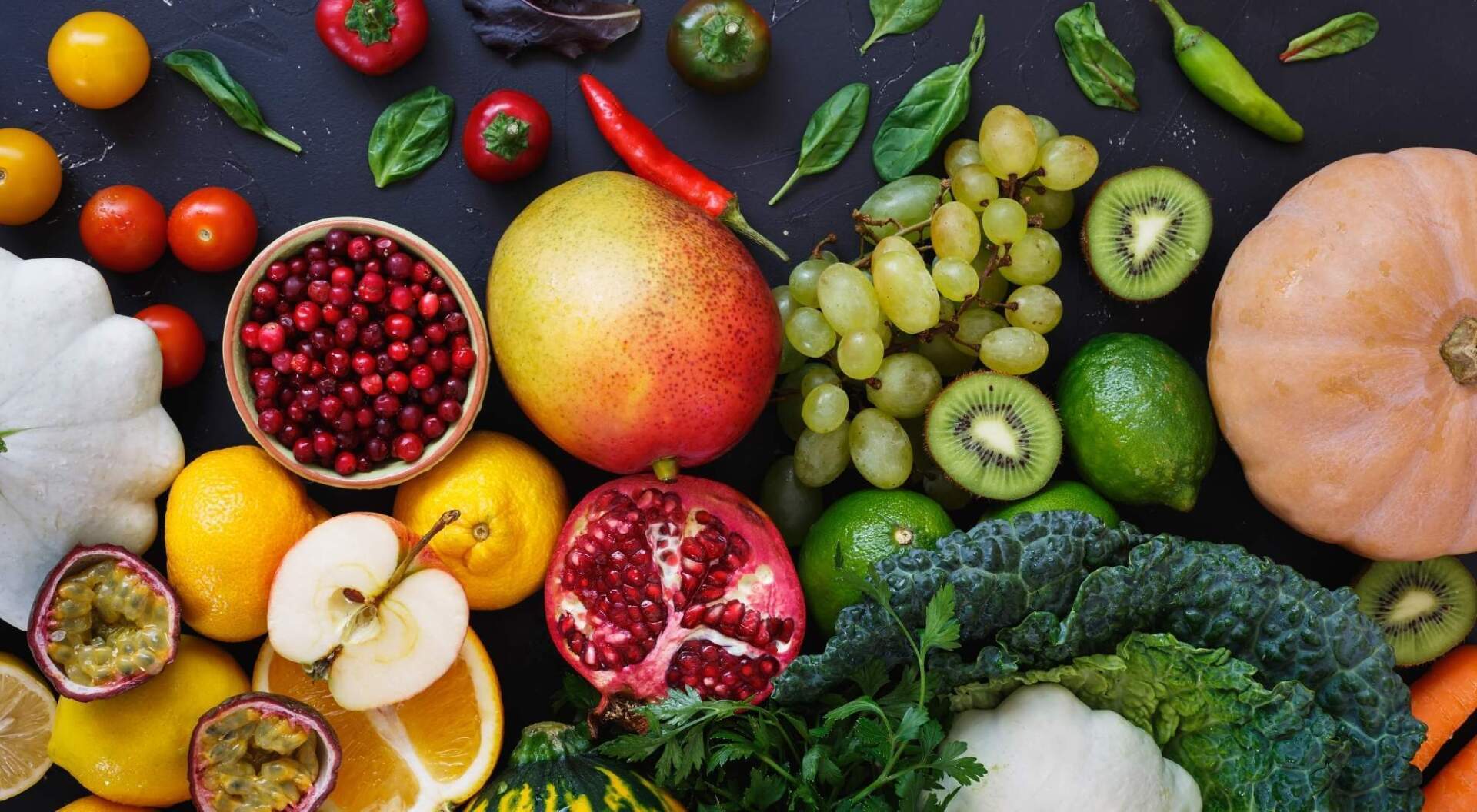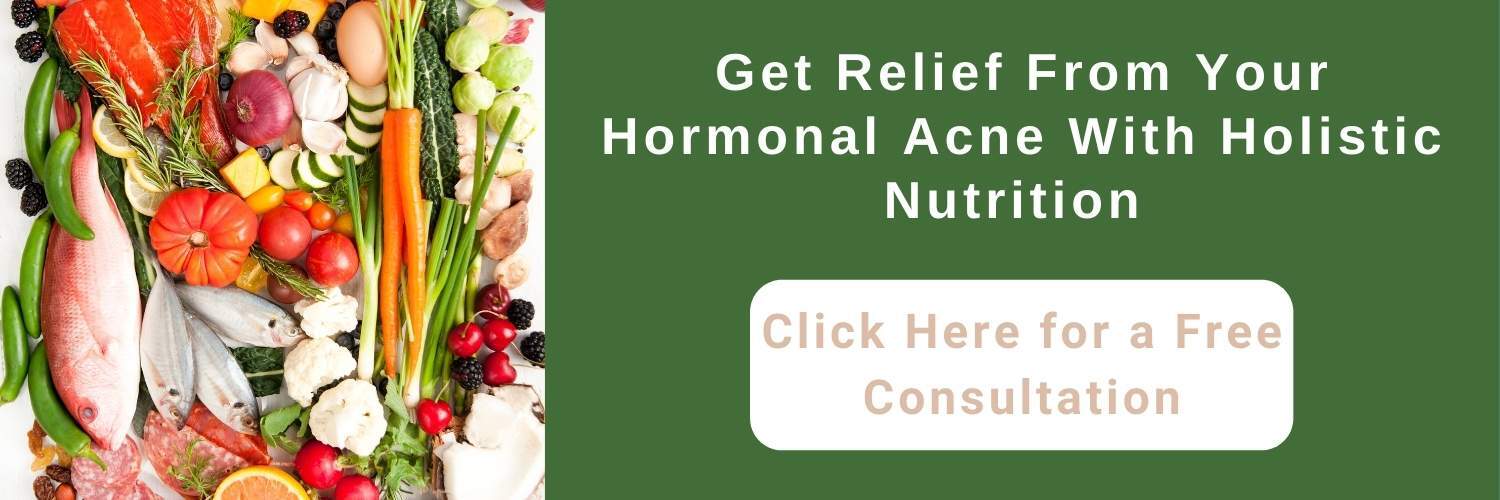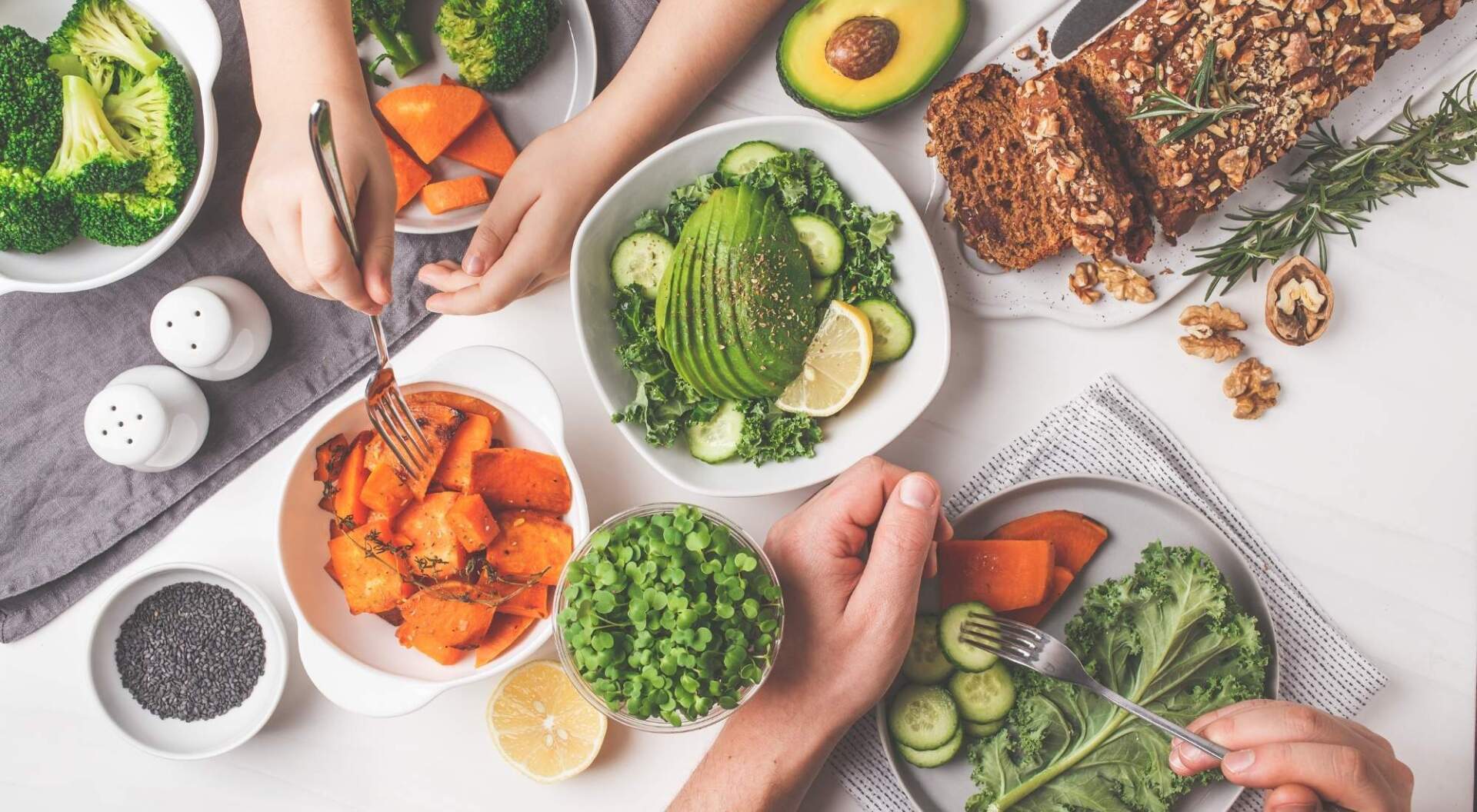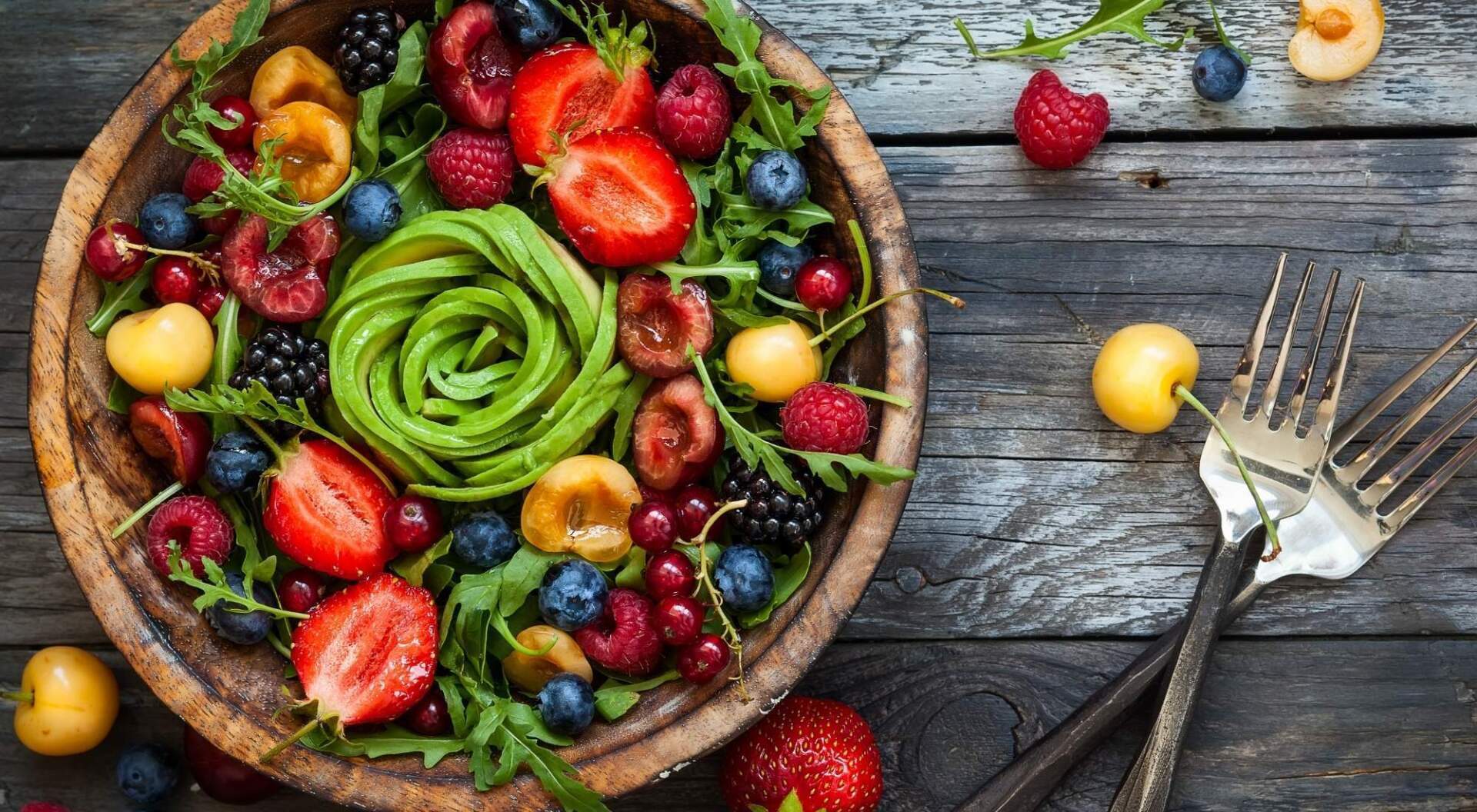Foods to Avoid if You Have Hormonal Acne
"The content below is not intended to be a substitute for professional medical advice, diagnosis, or treatment. Always seek the advice of your physician or other qualified health provider with any questions you may have regarding a medical condition."
Gone are the days of puberty, yet you’re still dealing with acne that covers your chin, jawline, and the area around your mouth.
You’ve grown tired of trying all the products and prescriptions, and you’re curious —
could your diet be playing a role in your hormonal acne?
It’s very likely.
Keep reading to learn:
- What foods to avoid if you have hormonal acne
- Diet tips; and
- Foods that prevent hormonal acne from returning.
Table of Contents
What Is Hormonal Acne?
When many people think of hormonal acne, they think of the acne that occurs during puberty, and while this is common, hormonal acne can occur well past the teenage and pubescent years.
Hormonal acne is acne that occurs as a response to hormonal changes. Hormonal acne is also referred to as
acne vulgaris. It occurs when hormones signal your body to increase the production of
sebum —
oil produced by your body to lubricate your skin.
This is normally done to keep your skin fresh and healthy.
Hormonal breakouts most often occur along the chin, jawline, and area surrounding the mouth.
These breakouts may come in the form of:
- Cystic acne
- Whiteheads
- Blackheads
- Inflammatory lesions
And while most people think that acne occurring on the forehead and mid cheeks might be hormonal, this usually isn’t the case.
What Causes Hormonal Acne?
What’s to blame for hormonal acne? Fluctuating hormone levels throughout your body are a common cause of hormonal acne.
Testosterone, for example, is a major culprit in causing hormonal acne.
Yes, even women have small amounts of testosterone circulating throughout their bodies.
Other causes of hormonal acne include:
- Menstruation
- Menopause
- Pregnancy
- Thyroid disease
- Polycystic ovary syndrome (PCOS)
- Starting or weaning off of oral contraceptive pills
Every person’s body reacts differently to hormonal changes. An increase of the hormone testosterone in one person’s body may create a breakout while it could have no effect on another person’s body.
Can Food Cause Hormonal Acne?
Although foods may not be the
cause of hormonal acne, certain foods, such as refined foods, dairy products, and sugary foods and beverages, are
linked to increasing acne development and making hormonal acne symptoms worse in adults.
3 Diet Tips for Hormonal Acne
If you’re suffering from hormonal acne, you’ve likely tried harsh chemical treatments, changing face washes, switching birth controls, etc.
But have you considered your diet? This is one of the first steps you should be taking to control hormonal breakouts.
What foods cause hormonal acne? Let’s look at what research says.
#1: Lower Your Caffeine Intake
Studies have found that too much caffeine increases the level of cortisol (the stress hormone) your body produces. When your body produces too much cortisol, the effects can be harmful and your hormonal acne may worsen.
Why?
It goes back to sebum production. When your body is producing too much cortisol, it may start to produce excess sebum.
But that’s not the only way that caffeine could be causing your hormonal acne.
Too much caffeine may interfere with your sleep patterns.
Lack of quality sleep can lead to your body producing unnecessary amounts of cortisol.
#2: Increase Your Omega 3 Fatty Acids
Fatty acids, like omega-3s, 6s and 9s, are an essential component for regulating hormones. They are natural anti-inflammatories; not only can they fight off acne, but they can also ward off future breakouts from occurring.
Omega-3s, specifically, are known to lower insulin-like growth factor 1,
which affects androgen levels in your body.
When insulin is high, your body is more likely to produce excess testosterone.
#3: Consider Low Glycemic Diets
Low glycemic index diets involve switching high glycemic foods with low glycemic foods based on how they affect a person’s blood sugar — the higher the ranking (1-100), the higher you can expect it to make your blood sugar levels to be.
When a person consumes too much sugar, the body produces more of the hormone called insulin, leading to increased inflammation in the body and, in turn,
more acne.
Choosing a low glycemic diet can not only help lessen hormonal breakouts, but it can also keep your blood sugar levels under control.
3 Types of Foods to Avoid for Hormonal Acne
#1: Dairy Products
For those with hormonal acne, dairy is a common culprit that causes those nasty bumps and the painful acne you’re experiencing.
More and more
studies show a link between dairy, the whey proteins in dairy products like milk, and acne.
How Can Dairy Products Contribute to Hormonal Acne?
Milk from cows contains both whey and casein proteins. These proteins stimulate growth as well as hormones in calves — and research suggests that it also promotes stimulation of hormones in human bodies, too.
When we digest the proteins found in milk, our bodies react by increasing insulin levels, raising blood sugar levels, and causing hormonal breakouts.
Cows’ milk also tells our bodies to release a hormone that is very similar to insulin called
IGF-1, which is known to trigger breakouts.
#2: Alcohol
Do you like an occasional glass of wine, a mixed drink or maybe a beer or two and you’re wondering:
Does alcohol cause hormonal acne? Not directly, but it does contribute to the problem.
Alcohol can affect body systems, including your hormones.
How Can Alcohol Contribute to Hormonal Acne?
Consuming too much alcohol can influence your body to produce more of the hormones testosterone and oestrogen.
When these levels increase, your body’s oil glands produce more sebum, clogging your pores and increasing the risk for painful hormonal acne to occur.
#3: Foods and Beverages with a High Sugar Content
Let’s go back to talking about foods with a high glycemic index.
If your diet is full of foods and drinks with a higher glycemic index (meaning they tend to get into your bloodstream quickly) like…
- White bread
- White rice
- Cake
- Cookies
- Breakfast Cereals
- Sweetened dairy products like yogurt
- Chips, potatoes, french fries
- Etc.
… you’re more likely to battle hormonal acne.
How Can Food and Beverages with a High Sugar Content Contribute to Hormonal Acne?
The higher the glycemic index of a food (the more sugar in the food), the more insulin your body will produce to bring down your blood sugar — increasing the chances of hormonal breakouts.
In fact,
studies have found that this increase in blood sugar levels may be the biggest cause of hormonal acne.
Instead, make the switch to consuming more whole foods that have a low-glycemic index score.
Foods such as…
- Nuts and seeds
- Most vegetables
- Low-glycemic fruits
- Eggs
- Tofu; and
- Healthy grains like rolled oats
...take longer to break down, can help stabilize blood sugar levels, and decrease the likelihood of hormonal imbalances that cause breakouts.
Foods to Prevent Hormonal Acne
We’ve talked about the foods that cause hormonal acne, but are there foods that can help prevent hormonal acne from occurring? Or help clear the breakouts when they happen?
The answer is: Yes.
A healthy diet may be the key to helping balance hormone levels and reduce the risk of future hormonal breakouts.
Are you suffering from hormonal acne? Foods to eat to prevent hormonal acne include the following:
Swap Sugary Drinks for Water or Green Tea
Sweetened drinks, specifically sodas, tend to be loaded with sugar — we’re talking up to 30 grams of sugar per serving.
Avoid blood sugar spikes by switching out that can (or two) of soda every day for an 8-ounce glass of water.
If you need an energy boost and a little more flavor, try making some green tea. To subdue a sweet tooth, consider adding
honey as a sweetener instead of sugar.
Studies show that
polyphenols found in green tea can reduce the sebum produced by the sebaceous glands —
perfect for preventing and treating hormonal acne.
Foods Rich in Antioxidants
Antioxidant-rich foods play a role in reducing hormonal acne. One study found that people who had lower antioxidants levels in their bloodstream suffered from more acne problems.
Although more research may be needed to confirm that foods rich in antioxidants can ward off hormonal breakouts, there is absolutely no harm in increasing your intake of antioxidant-rich foods, like:
- Broccoli
- Carrots
- Artichokes
- Cabbage
- Leafy greens — spinach, kale, collard greens
- Pumpkin
- Sweet potatoes
- Squash
- Etc.
Healthy Fats
Earlier, we talked about the importance of Omega-3s and fatty acids in diets; but what types of foods does that include?
Try adding more…
- Walnuts
- Chia seeds
- Avocados — you’ll get those antioxidants in, too
- Salmon
- Flax seeds; and
- Eggs
… into your diet to help balance hormones and avoid hormonal acne.
How Holistic Nutrition Can Help with Hormonal Acne
Chemical treatments and prescribed medications are often a short-term fix to a long-term problem regarding hormonal acne.
Instead of finding a temporary solution,
it’s vital that you get to the root cause of your problem, which typically involves adjusting and balancing your hormone levels.
And this can be done holistically.
Are you unsure if your acne troubles are caused by a hormonal imbalance, a food sensitivity, or something more? Nutrition response testing could be your first line of defense against hormonal acne.
Nutrition Response Testing
Nutrition Response Testing has helped hundreds of people overcome their hormonal acne by helping them learn how their bodies react to the foods they put in it.
Think of it as a more accurate —
and reliable — food journal.
Nutrition Response Testing is based on a proven theory that your body will tell you exactly what’s wrong with it by exhibiting a series of symptoms. These symptoms are your map to a root problem. Nutrition Response Testing can help you follow that map and eliminate the problem — in this case your hormonal acne —
for good.
Book a Consultation with HealthierU Today
Are you ready to take control of your hormones? Sick of dealing with acne that you thought you wouldn’t see again after puberty?
Book a free consultation with HealthierU today.
If you learn about Nutrition Response Testing and believe you can reap the benefits of the test, Dr. Sergi will get started with a Nutrition Response Test. She will then develop a plan based on your body’s specific needs that will
help balance hormones and get rid of those stubborn hormonal breakouts for good.






